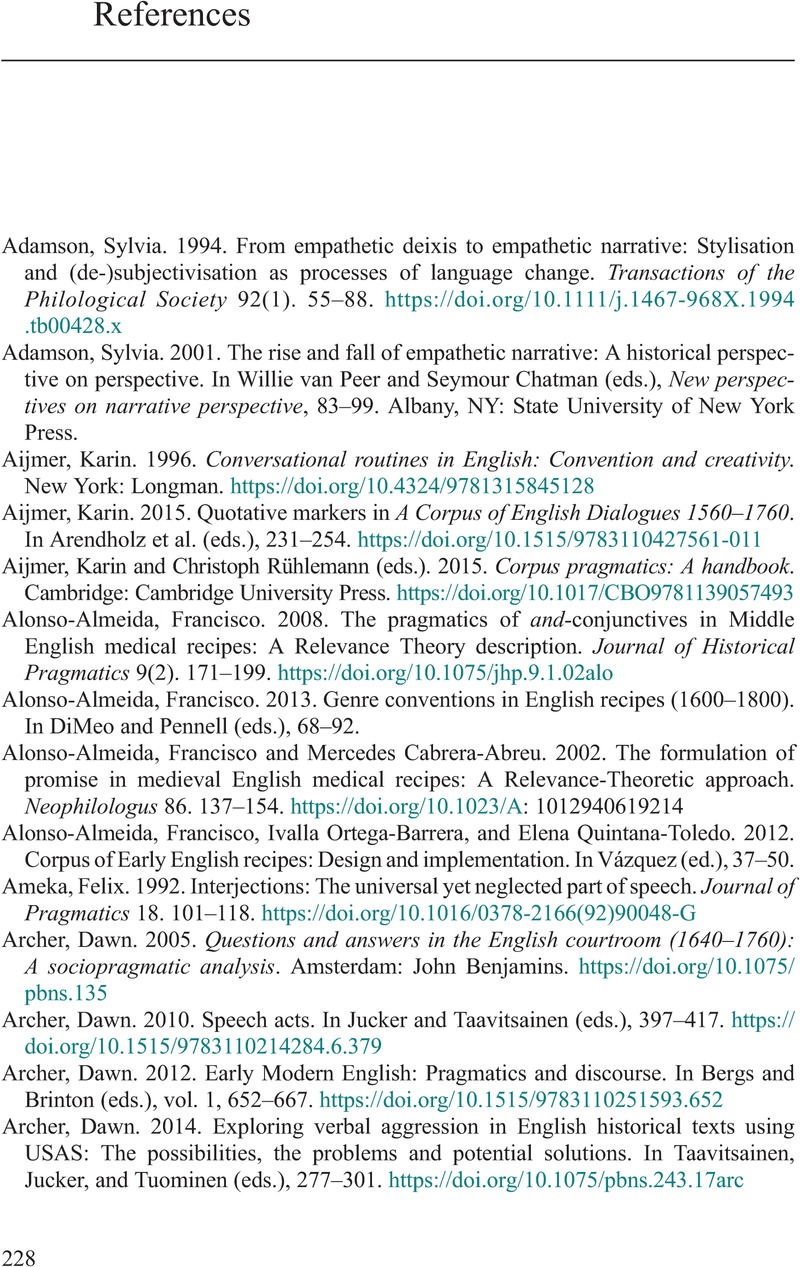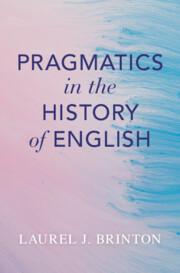Book contents
- Pragmatics in the History of English
- Pragmatics in the History of English
- Copyright page
- Contents
- Figures
- Tables
- Preface
- Abbreviations
- 1 The Field of Historical Pragmatics
- 2 Historical Pragmatics
- 3 Pragmatic Markers
- 4 Speech Representation
- 5 Politeness
- 6 Speech Acts
- 7 Address Terms
- 8 Discourse: Register, Genre, and Style
- 9 Concluding Remarks
- References
- Index
- References
References
Published online by Cambridge University Press: 28 September 2023
- Pragmatics in the History of English
- Pragmatics in the History of English
- Copyright page
- Contents
- Figures
- Tables
- Preface
- Abbreviations
- 1 The Field of Historical Pragmatics
- 2 Historical Pragmatics
- 3 Pragmatic Markers
- 4 Speech Representation
- 5 Politeness
- 6 Speech Acts
- 7 Address Terms
- 8 Discourse: Register, Genre, and Style
- 9 Concluding Remarks
- References
- Index
- References
Summary

- Type
- Chapter
- Information
- Pragmatics in the History of English , pp. 228 - 252Publisher: Cambridge University PressPrint publication year: 2023



